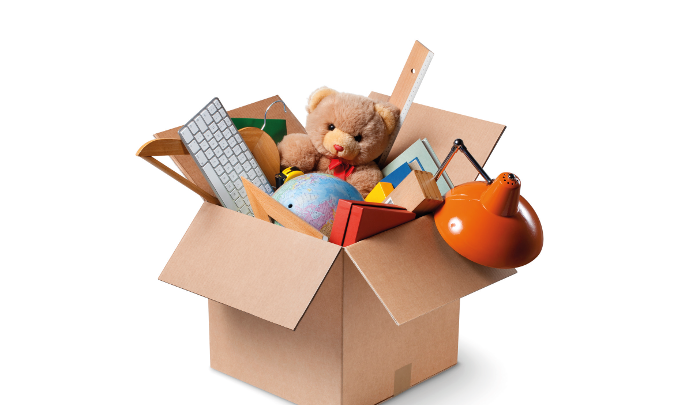8 Things You Should Throw Out Of Your Classroom Today

Embarrassed by the state of your teaching space? Forget 'just in case' and learn to let go of the clutter

- by Angela Watson
- Educational consultant, author and founder of the Truth for Teachers podcast Visit website

Hoarding is bad enough at home, but it can be an absolute hindrance in schools.
Clear out your classroom today, starting with these eight ideas…
1. Empty containers
Especially if they’re used margarine tubs, Pringles cans, laundry detergent bottles, and so on. There is no reason to feel guilty for tossing these in the recycle bin. Don’t try to justify holding on to them by telling yourself, ‘Oh, I can use these to hold office supplies’. If you’re not saving them for a specific lesson, get rid of them! They will take over your cupboards and make you feel like a pack rat.
2. Your junk draw
You know all the random paper clips, broken rubber bands, pennies and toys you’ve confiscated from kids? Don’t lie to yourself and pretend you’ll clean out that drawer one day. You’ve got much higher priorities, which is why it never gets done. Do a quick scan and save anything of value, then dump the rest. Immediately put useful things in the empty drawer so it’s full of stuff you love and actually use, and doesn’t become a magnet for junk again.
3. Inherited resources
The previous occupant of your classroom was not doing you a favour by leaving you with a filing cabinet stuffed haphazardly with random materials – this was a little white lie she told herself to avoid having to clean things out. Anything more than ten years old should get recycled immediately, unless it’s in new condition and clearly of exceptional, timeless quality. The materials served their purpose for many years, and it’s OK to let them go.
4. Students’ files
Keep students’ portfolios and documents for one full school year after they’ve left your class, then toss them out. You shouldn’t need to keep documentation unless there’s a very special situation (you’ll know which kid you might want to hang onto the paperwork for). Everyone else’s stuff? Recycle.
5. Sweet notes
I have one medium-sized plastic tub that I use to store the most precious mementos and lovely letters from students and parents. I ask myself, ‘Is this worthy of being read 30 years from now? How does this compare in sentimental value to the other things in the tub?’ This forces me to be selective. Keep your collection digitally if you prefer: take a picture and save it in a special folder. But please, do not feel like it’s heartless to throw away things from your students. It’s a necessity.
6. Broken toys
Organise a ‘missing pieces’ tub for your room for students to put materials in when they find them on the floor. If missing pieces haven’t shown up by the end of the school year, get rid of the item the piece belongs to. Decks of cards that are missing twenty numbers, puzzles without that final corner piece – these things cannot stay.
7. Boring books
I know it’s painful to get rid of books, but anything that you really don’t want your students reading should be gone. That book from 1984 with stereotypical references to Native Americans? Recycle bin. The one where the main character is basically a bully and you hate how your students imitate him when they read it? Get rid. Books that are missing pages, scribbled on, disgustingly grimy… recycle. You want your class library to be a beautiful, organised place full of relevant books that kids are excited to read, not a dumping ground for every text you’ve come across since 1977.
8. Teaching resources
I used to keep at least two copies of the teaching resources I really loved in case I lost one or the photocopier chewed it up. But 99% of the time, you only need one paper copy, and all those extras really add up. Don’t hold onto things you can keep digitally, easily find online, or get from a colleague. If you don’t do timed maths quizzes any more but are afraid to get rid of the giant stack, do it anyway, knowing that you can download them from the internet if you ever change your mind. If something is really important, it won’t be gone forever, because someone else in the world will have a copy of it.
Angela is a teacher, currently working as an educational consultant in Brooklyn, New York. Follow her on Twitter at @angela_watson and visit her website at thecornerstoneforteachers.com.










